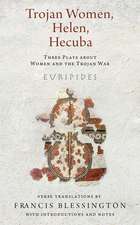
Cărți de Euripides

Euripides (; Ancient Greek: Εὐριπίδης Eurīpídēs, pronounced[eu̯.riː.pí.dɛːs]; c.480– c.406 BC) was a tragedian of classical Athens. Along with Aeschylus and Sophocles, he is one of the three ancient Greek tragedians for whom any plays have survived in full. Some ancient scholars attributed ninety-five plays to him, but the Suda says it was ninety-two at most. Of these, eighteen or nineteen have survived more or less complete (Rhesus is suspect). There are many fragments (some substantial) of most of his other plays. More of his plays have survived intact than those of Aeschylus and Sophocles together, partly because his popularity grew as theirs declined—he became, in the Hellenistic Age, a cornerstone of ancient literary education, along with Homer, Demosthenes, and Menander.
Euripides is identified with theatrical innovations that have profoundly influenced drama down to modern times, especially in the representation of traditional, mythical heroes as ordinary people in extraordinary circumstances. This new approach led him to pioneer developments that later writers adapted to comedy, some of which are characteristic of romance. He also became "the most tragic of poets", focusing on the inner lives and motives of his characters in a way previously unknown. He was "the creator of ... that cage which is the theatre of Shakespeare's Othello, Racine's Phèdre, of Ibsen and Strindberg," in which "imprisoned men and women destroy each other by the intensity of their loves and hates". But he was also the literary ancestor of comic dramatists as diverse as Menander and George Bernard Shaw.
His contemporaries associated him with Socrates as a leader of a decadent intellectualism. Both were frequently lampooned by comic poets such as Aristophanes. Socrates was eventually put on trial and executed as a corrupting influence. Ancient biographies hold that Euripides chose a voluntary exile in old age, dying in Macedonia, but recent scholarship casts doubt on these sources.

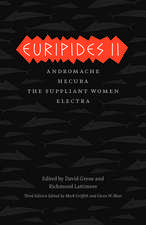
Euripides II: Andromache, Hecuba, The Suppliant Women, Electra

Euripides I: Alcestis, Medea, The Children of Heracles, Hippolytus

Andromache, Hecuba, Trojan Women
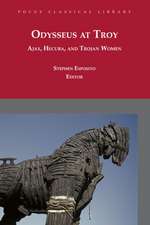
Odysseus at Troy: Ajax, Hecuba and Trojan Women

An Oresteia

Grief Lessons

Orestes and Other Plays
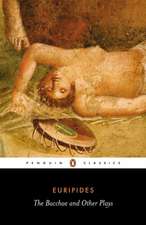
The Bacchae and Other Plays
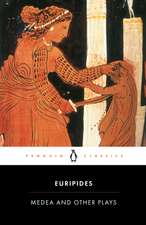
Medea and Other Plays

Greek Tragedy

Euripides

Electra and Other Plays

Medea
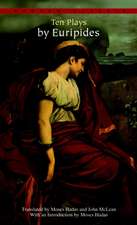
Ten Plays by Euripides

Heracles

Hippolytus
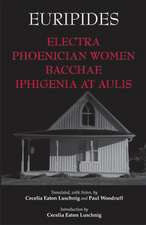
Electra, Phoenician Women, Bacchae, and Iphigenia at Aulis

Alcestis, Medea, Hippolytus
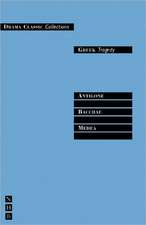
Greek Tragedy: Antigone/Medea/Bacchae
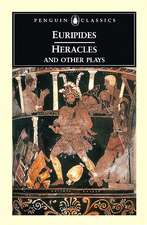
Heracles and Other Plays
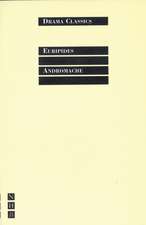
Andromache
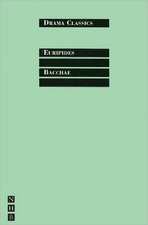
Bacchae: Also Includes in a Little World of Our Own

Bacchae
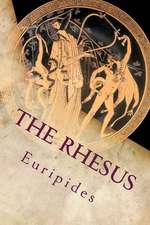
The Rhesus

After the Trojan War: Women of Troy / Hecuba / Helen

Three Plays
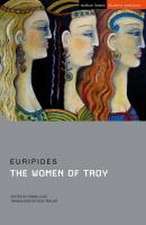
The Women of Troy
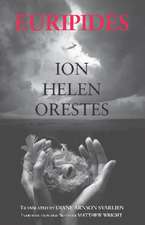
Ion, Helen, Orestes

Three Other Theban Plays: Aeschylus' Seven Against Thebes; Euripides' Suppliants; Euripides' Phoenician Women
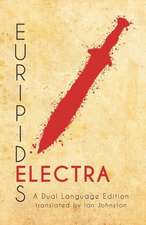
Euripides' Electra: A Dual Language Edition

Medea

Bacchae
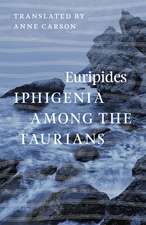
Iphigenia among the Taurians

Euripides V: Bacchae, Iphigenia in Aulis, The Cyclops, Rhesus

The Orestes Plays
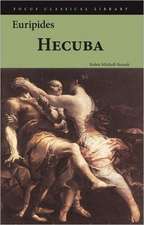
Hecuba

The Trojan Women

Electra

Euripides: Four Plays: Medea/Hippolytus/Heracles/Bacchae

Cyclops

The Bacchae of Euripides: A New Version

Iphigenia at Aulis

Fragmente • Der Kyklop • Rhesos

Orestes • Iphigenie in Aulis • Die Mänaden

Die bittflehenden Mütter • Der Wahnsinn des Herakles • Die Troerinnen • Elektra

Alkestis • Medeia • Hippolytos

Die Kinder des Herakles · Hekabe · Andromache

Iphigenie im Taurerlande. Helena • Ion • Die Phönikerinnen
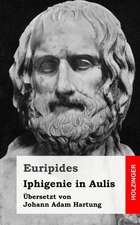
Iphigenie in Aulis

The Tragedies of Euripides
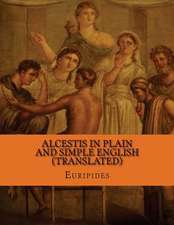
Alcestis in Plain and Simple English (Translated)
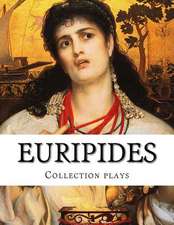
Euripides, Collection Plays

Las Troyanas

The Bacchantes
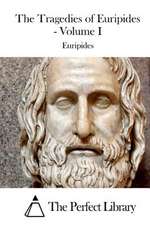
The Tragedies of Euripides - Volume I
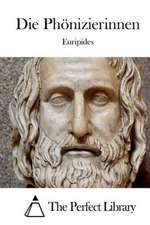
Die Phonizierinnen

The Trojan Women of Euripides
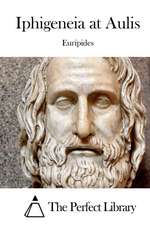
Iphigeneia at Aulis

Alcestes
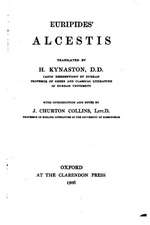
Euripides' Alcestis
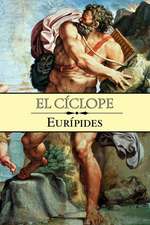
El Ciclope

Medea of Euripides

The Bacchae of Euripides
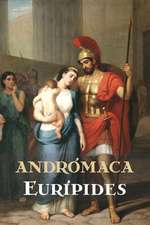
Andromaca
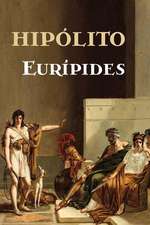
Hipolito

Alcestis

Los Heraclidas

Hippolytus and the Bacchae

Medea

Helen

Iphigenia in Tauris

Orestes

The Phoenissae

The Suppliants
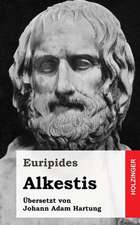
Alkestis

La Troyanas

The Iphigenia in Tauris of Euripides
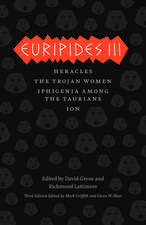
Euripides III: Heracles, The Trojan Women, Iphigenia among the Taurians, Ion
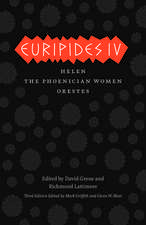
Euripides IV: Helen, The Phoenician Women, Orestes

Iphigenia in Aulis: Two versions of Euripides’ masterpiece in a new verse translation

Elektra

The Electra of Euripides Translated Into English Rhyming Verse: Theodore Roosevelt, Supplement

The Tragedies of Euripides, Volume I.
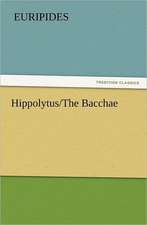
Hippolytus/The Bacchae
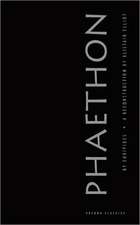
Phaethon

Euripides - Plays - Vol I

Euripides - Plays - Vol II
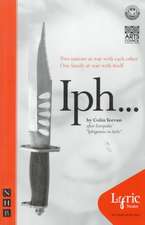
Iph...
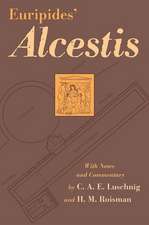
Alcestis: A Tale of Oklahoma Boyhood

Euripides Plays: 1 : Medea; the Phoenician Women; Bacchae
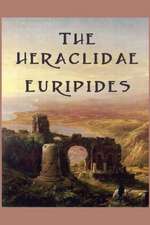
The Heraclidae
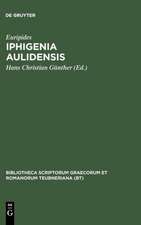
Euripides, Iphigenia Aulidensis
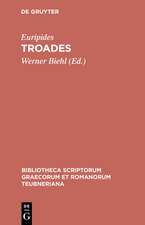
Troades

Euripides Plays: 6: Hippolytos; Suppliants and Rhesos
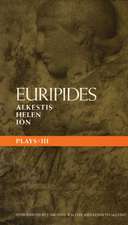
Euripides Plays: 3: Alkestis; Helen; Ion
- 1
- 2